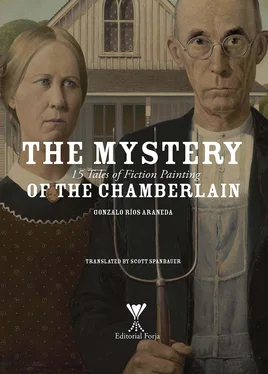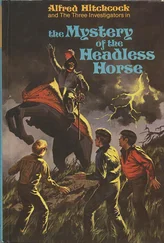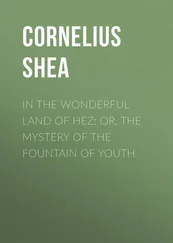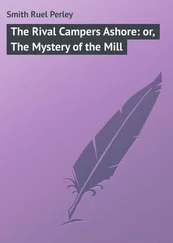“It’s plausible that such a contraption could transmit some sort of message that must necessarily have reached you,” stated Dante. “However, you spoke of that humming of bees. “Could it have been some sort of musical harmony?” he insisted.
“Now that you mention it, I’m experiencing the same sensation that overcame me that night. Yes,” said the friar, as if talking to himself.
Did any of you think for a moment that it could have been the work of the devil?” Dante asked. “Did you consider it a possibility?”
“Where are you headed with this”, interrupted Giotto, dismayed by the poet’s interrogation.
Without answering Giotto’s question, the young Alighieri insisted upon pestering the old man, who, with his cheeks tightening over his old eyeballs looked again at Dante.
“Have you not read the Legenda Maior ?”
“Yes, but Saint Bonaventure purged a large portion of the popular sources from the life of Saint Francis,” charged the poet.
“Start at the beginning. Don’t get ahead of yourself and mix up the facts, as haste makes bad counsel…and don’t try to look clever. And don’t forget that I was present and saw what I saw,” said the old man, his face gaunt with fatigue, and ignoring the issue of Saint Bonaventure. Then, taking a brief pause to catch his breath, he added with obvious signs of exhaustion, “Both of you defy the sacred order. For less, more than one wise man has burned at the stake, my fine young friends.” Then he returned to his memories of that long-ago scene; and suddenly, after batting the air painfully with his fingers, he said that he had remembered a situation that, perhaps, was of some importance.
“In fact, there was something that night that seemed out of place with the complete serenity of that miracle, and which contrasted with the atmosphere of profound peace that filled everyone,” said Friar Anselmo.
“And what was that?” asked Dante.
But it was now very late and Father Anselmo felt his strength waning, such that he asked them to return the following day. “Earlier this time,” he told them.
“Does it have to do with some message?” Dante insisted.
“No, son, no…No, without a doubt, but, Oh!, what I can tell you is that the hand of God was vividly manifest that night, but…better to discuss that with you tomorrow…leave me be,” the old man pleaded. “I can assure you that the devil has nothing to do with this…my old bones don’t support me. You’ll have to excuse me,” he managed to stammer, and stood up with the painter’s help, who did his best to get him to the side of his bed; meanwhile Dante looked out the cell’s door in search of a monk who might be of assistance.
After a somewhat difficult farewell, the painter departed satisfied, having stored away features of the saint’s life in his mind, an outcome unthinkable through mere reading. He left the place with a feeling of fullness, albeit of things unfinished as well. He also realized with satisfaction that, far from feeling harmed by the presence of the odd poet, he had learned much from his bounteous spiritual nature. Even now, impressions crossed his mind that Giotto found to be of great import to his own outpourings of imagination.
“I am a longtime admirer of your work,” said Dante, as if wanting the painter not to forget their meeting. “Perhaps you simply forgot that I was in your master Cimabue’s studio some years back. I am quite familiar with your art’s virtues, just as I know your master, to whom you no longer have any ties that hold you back. Even though only the two of you are uniquely capable of illustrating the transitory nature of earthly glory, it is you that moves me more deeply.”
Giotto, with his usual humble demeanor, remained silent. He understood that the world of the past masters had been torn to shreds, and that his friend Dante was right to describe the nature of the world as he had implied today; moreover, it seemed to him that the poet’s opinions were somehow secret, at odds with his own character.
Exiting the front door, Giotto noted that the porter monk was excessively chummy with Dante, which seemed to him, unaccustomed as he was to the world of politics, an extravagance on the bard’s part. He understood, however, that a thread ran through politics and the sacristy; and, here, the Abbot’s role became clearer to him. “A cleric, friend of a politician,” but, as befits a healthy spirit free of malice, he rejected any reasoning supported by the superficiality of the circumstantial point of view. Not without pleasure, he felt that with the poet, he was solidifying knowledge coming quite from afar.
A while had passed since a sun barely starting to heat up had broken through the morning fog, and the day appeared to unfold clear and promising above the abbey. When the bells had already announced the Third Hour, a monk opened the monastery’s peep hatch onto the street and through its grille offered a quick gesture by way of greeting to the two visitors rubbing their hands outside the building. Both men passed obliquely through the half-opened door. Discreetly, although with no uncertain difficulty, the porter monk closed it behind them. Giotto noted that the peace within the grounds was more penetrating than in the previous days; and when the poet tried to speak to their guide, the latter offered no sign of reciprocation, and restricted himself to leading them to the opposite end of the passageway they had walked down previously. He took them to a small, austere room already receiving warm rays of sunlight atop the scant pieces of furniture standing aggressively amidst the faint morning mist. There stood the Abbot, a man of stern appearance and questioning eyes. He was accompanied by a young friar barely able to hide his lack of sleep. After greeting them with a movement of his head, the Abbot announced:
“Brother Anselmo has gone to meet Our Lord. He died at four in the morning attended by his brothers, who watched over him until his last breath, in the name of the Father.”
“He died in the peace of the Lord,” assured the friar, and after making a bow while crossing himself at the same time, he left the room.
Signor di Bondone and signor Alighieri found themselves overcome by complete bewilderment and barely managed to take the hands of the Abbot and kiss them. Later, they took their leave and upon reaching the exit, watched as the porter monk struggled to open the door which, swollen by the humidity, resisted, dragging its thick wooden base on the ground. In the street at last, the two men walked together without saying a single word, until Giotto stopped under a tree and, tearfully, started a prayer that the poet followed in a murmur. Their praying blended with the birds’ choral ruckus. Some circled round the treetops, others perched on the shady branches. The chirping lasted as long as the prayer. Amen.

Leonardo da Vinci
Mona Lisa, partial reproduction, 1503
From the first day of that month of March 1503, when the wife of Francesco del Giocondo settled herself in in front of all those musicians, a bit motley in the shadows and with their backs to the painter, you could sense an atmosphere of premonition in the hall. Three musicians and two singers arranged their instruments and looked over their scores, while a young man, whom the master Leonardo later on will call by the name Giacomo and, depending on his mood, Salaì, slipped away toward the back of the room —whose walls were covered with maroon-colored curtains— without ever taking his eyes off the woman seated on the posing bench.
Читать дальше
